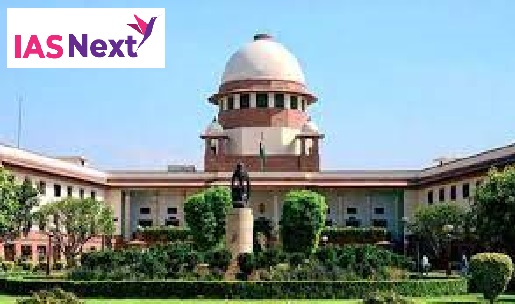CURRENT AFFAIRS
Get the most updated and recent current affair content on Padhaikaro.com
What are Unresolved Constitutional Cases?
- IAS NEXT, Lucknow
- 08, Dec 2021

What is the issue?
There have been docketfull of cases pending in the courts that involve crucial questions about state power, accountability and impunity.
What are the cases about?
- The cases extend to cases of constitutional questions that arise in the course of controversial state action.
- Issues revolve around the
- Violation of rights
- Federal structure
- Elections
- Questions of power
- Accountability
- Consequently, the longer they are left hanging without a decision, the greater the damage that is inflicted upon our constitutional democracy’s commitment to the rule of law.
What are some of these cases?
- Kashmir Case- There is the constitutional challenge to the Presidential Orders of August 5, 2019, that effectively diluted Article 370 of the Indian Constitution, and bifurcated the State of Jammu and Kashmir into two Union Territories, controlled by the Centre.
- This tendency seems to have gripped the Court and the case raises certain fundamental questions about constitutional power and accountability.
- First, it raises the question of whether the Centre can take advantage of an Article 356 situation in a State when no elected government and Assembly is in existence to make permanent and irreversible alterations in the very structure of the State itself.
- Second, the case raises the question of whether the Union Legislature has the authority not simply to alter State boundaries (Article 3 of the Constitution), but degrade a State into a Union Territory.
- If it turned out that the Union Legislature have this power, it would mean that India’s federal structure is at the mercy of Parliament where it could convert India from a union of States to a union of Union Territories, if wanted.
- The Supreme Court’s now two-and-a-half-year delay in hearing and answering these questions is unreasonable.
- Electoral bonds case- The electoral bonds scheme authorises limitless, anonymous corporate donations to political parties, making election funding opaque and biased towards the ruling party.
- This impacts not only the integrity of the election process but also the constitutional right of citizens to an informed vote.
- The Supreme Court has refused to accord a full hearing to the constitutional challenge which is pending for more than four years.
- CBI case– In 2013, the Gauhati High Court held that the CBI was not established under any statutory authority which was immediately stayed when it was appealed to the Supreme Court but never been heard.
- Thus, the CBI continues to function often controversially despite a judgment by a constitutional court that has found its very existence to be illegal.
- CAA case- The constitutional challenges to the Citizenship (Amendment) Act (CAA) remain unheard.
- UAPA case– The challenges to the much-criticised Section 43(D)(5) of the Unlawful Activities (Prevention) Act, which makes the grant of bail effectively impossible remains a concern.
- The challenge to Section 43(D)(5) is perhaps the case that most directly affects civil rights, as the section continues to be applied on a regular basis (as in the Bhima Koregaon case).
What are the consequences of the pending of these cases?
- By not deciding, the Court is in effect deciding in favour of one party without a reasoned judgment that justifies its stance.
- Judicial evasion of this kind is damaging for the accountability of the judiciary itself.
- The Court’s inaction offers no reasoning and affects the public scrutiny and has a serious impact on the rule of law.
- It must be acknowledged that the responsibility for constituting benches and scheduling cases rests solely with the Chief Justice of India (CJI).
- The importance of the rule of law and the independence of the judiciary must be focused.
- There is a need to hear and decide the important constitutional cases pending before the Court.